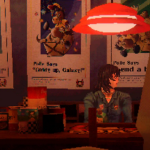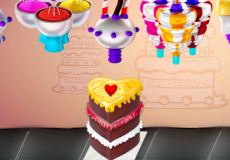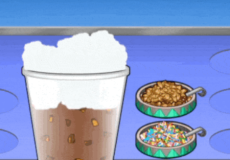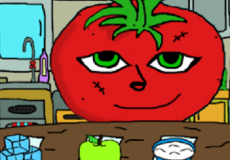

Pineapple on Pizza
Advertisement
Pineapple on Pizza is a short first-person exploration game that places the player on an island where a continuous celebration never stops. The setting is bright and full of movement—characters dance in unison, music plays in a loop, and everything appears calm and content. There are no tutorials, menus, or goals. You’re simply there, dropped into a scene that seems to have existed long before your arrival and will continue whether you act or not.
Advertisement
Similiar games
Pineapple on Pizza is a short first-person exploration game that places the player on an island where a continuous celebration never stops. The setting is bright and full of movement—characters dance in unison, music plays in a loop, and everything appears calm and content. There are no tutorials, menus, or goals. You’re simply there, dropped into a scene that seems to have existed long before your arrival and will continue whether you act or not.
Movement Without Meaning
The characters you encounter don’t speak or respond. They move in patterns, facing the sea, swaying near trees, or spinning alone. As you walk among them, you begin to sense that this joyful scene has no depth, no change, and no end—just repetition. The player’s role is unclear. You can walk, explore, observe—but nothing else. The only element that breaks this endless rhythm is the volcano at the island’s center, looming without explanation.
The Choice That Ends the Celebration
Eventually, curiosity leads you to the volcano. Jumping into it brings an abrupt transformation. The music stops. The dancers freeze. The energy vanishes in an instant. There are no visual effects or rewards—just silence and stillness. This small action redefines the entire experience. What was once festive now feels fragile, and the player must sit with the consequences of that change.
The experience includes:
· Free exploration of a looping environment
· No user interface or objectives
· Environmental storytelling through contrast
· One player-initiated event that changes everything
· A brief runtime with a strong emotional turn
Interpretation Without Explanation
Pineapple on Pizza doesn’t guide your thoughts. It offers no commentary or outcome, allowing each player to interpret what just happened. Was the celebration real or artificial? Did your action ruin something or reveal it for what it was? The lack of narrative structure encourages reflection on presence, change, and the unspoken impact of intervention.
In a few minutes, Pineapple on Pizza tells a complete emotional story without words, dialogue, or plot. It uses contrast—between motion and stillness, sound and silence—to leave a lasting impression. It’s not about answers. It’s about what remains when the music stops—and whether you meant to stop it.
Discuss Pineapple on Pizza




















